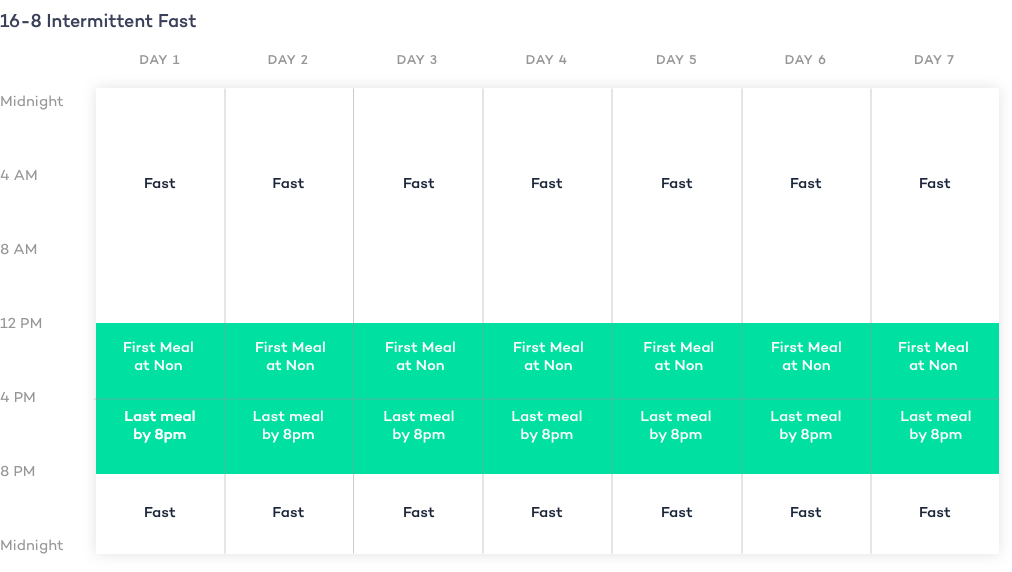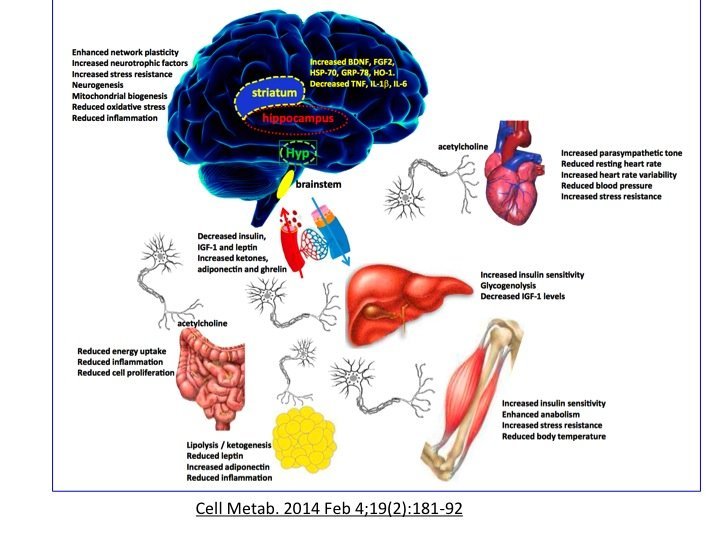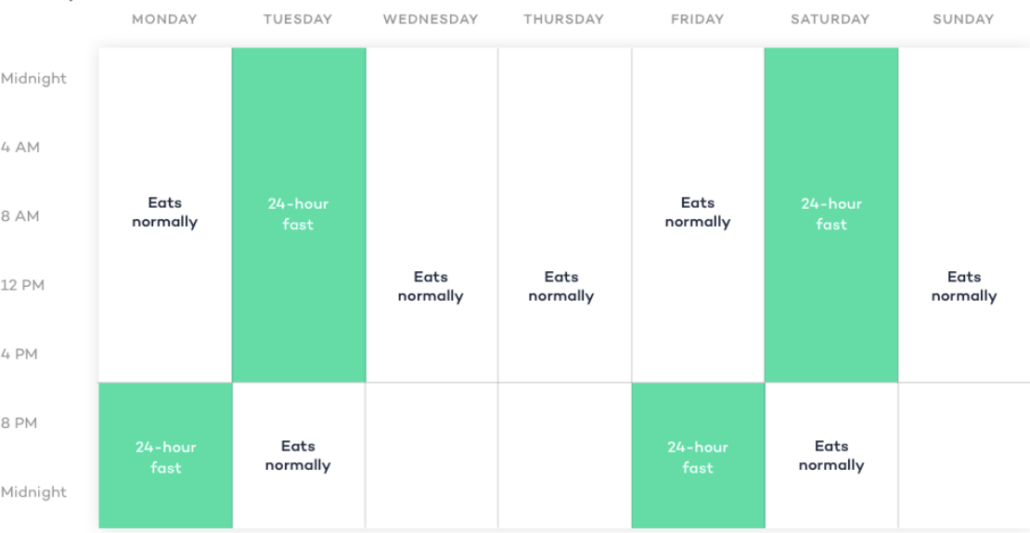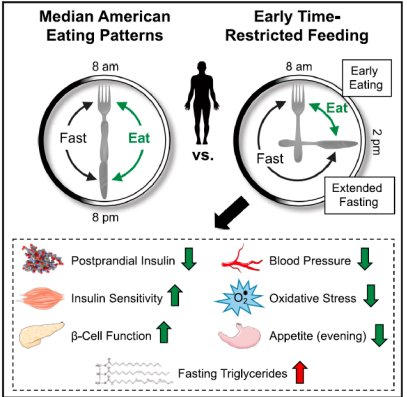We include products in articles we think are useful for our readers. If you buy products or services through links on our website, we may earn a small commission.
The Dr. Jason Fung Fasting Approach to Weight Loss and Wellbeing

We live in a world where diet plans and weight loss methods come and go like passing styles. Yet, ancestrally aligned eating principles, including intermittent fasting, have emerged as powerful and sustainable ways to optimize health and well-being.
Among intermittent fasting thought leaders, Dr. Jason Fung is one of the most popular and trusted. He has dedicated his career to making intermittent fasting accessible and safe to countless people whose lives have been transformed by his support and recommendations.
In this article, we’ll lay out the principles of Dr. Jason Fung’s fasting protocol and explore the key components, scientific underpinnings, health benefits, and strategies that will help you embark on a transformative journey of your own.
Table of Contents
Who is Dr. Jason Fung?
Dr. Jason Fung is a Canadian nephrologist (kidney specialist). He is also the best-selling author of numerous books about intermittent fasting and low-carb diets for treating obesity and diabetes.
Some of his bestselling titles include “The Obesity Code,” “The Diabetes Code,” and “The Cancer Code.” His books are treasure troves of evidence-based insights and practical guidance for using fasting and low-carb eating to treat the root causes of hormonal and metabolic disorders.
Dr. Fung got his degree from the University of Toronto and did his residency at UCLA–two of the world’s best medical institutions. Yet the conventional approaches of low-fat eating and long lists of medications that he had been trained to administer were failing his patients.
These failures compelled Dr. Fung to learn more about the underlying factors of metabolic and inflammatory disorders. Eventually, Dr. Fung began experimenting with fasting protocols and witnessed significant weight loss, improvements in insulin sensitivity, and reversal of type 2 diabetes among his patients.
Why Dr. Fung Believes Fasting is So Important
Dr. Fung points out that nearly half of Americans are diabetic or pre-diabetic. He breaks this down further to 10-15% of Americans being diagnosed with type 2 diabetes. With an additional 30-35% beign pre-diabetic.
The root cause of this prevalence of disease and disorder is the relentless onslaught of high-sugar diets.
Humans evolved over millions of years, eating low-carb diets centered around animal fats.
Problems inevitably arise when our ancestral physiology is subjected to the standard American diet loaded with processed grains, added sugars, fruits, and high-carb veggies. All of these foods were nonexistent for our caveman ancestors, with whom we share nearly identical DNA.
The body isn’t good at processing all that sugar. It converts what it can into fat, and the excess, as Dr. Fung puts it, “goes all over the body. And every single organ just starts to rot away.”
In relation to excess sugar intake, we have two simple options:
- Cut off the supply of sugar
- Give your body time to burn it off
Your Body Has Two Modes
Dr. Fung explains that your body has two metabolic modes:
- Growth mode: Where your body assimilates nutrients into body tissues, including fat and muscle.
- Repair mode: When you’re in a fasted state, your body activates a cellular repair and renewal process called autophagy.
Autophagy
Autophagy, which literally means self-devouring, is a process where your cells begin to break down old cell parts (and even entire cells) and recycle them into new parts.
Your body activates autophagy when you restrict calories for at least 16-18 hours. And this restricted period must take place overnight when it aligns with your internal circadian rhythm. . However, the timing of your fast is paramount. [1] [2]. [3]
Autophagy is an area of growing research, with preliminary studies revealing numerous powerful health benefits, including:
- Increased longevity and anti-aging effects 4 5
- Reduced Inflammation 6 7
- Anti-cancer properties 8 9
- Supports cardiovascular health 10
- Protection against neurodegenerative diseases like Alzheimer’s and Parkinson’s 2
You can hear Dr. Jason Fung run through the basic of autophagy below
What is Intermittent Fasting?
Intermittent fasting simply means restricting the times you eat to a specific time window and completely eliminating caloric intake during your fasting period.
Intermittent fasting is a broad term that entails shorter-term or “time-restricted eating” techniques while referring to longer fasting periods like OMAD “one meal a day’” and other methods requiring abstaining from food for 24 hours or longer. 3 4
What Fasting Methods Does Jason Fung Recommend?
Dr. Fung supports all types of intermittent fasting and believes that they can and should be tailored to individual needs and goals.
Time Restricted Eating
The easiest approach that Jason Fung suggests is eating breakfast at around * am and then dinner at 6 pm. This ten-hour eating window is pretty liberal, but not eating after dark activate innate metabolic processes governed by your circadian rhythm.
Studies have found that abstaining from calories after sundown results in surprisingly powerful benefits, including
- Reduced body fat [13]
- Better sleep[14]
- Relief from digestive issues, including abdominal pain, bloating, diarrhea, and constipation [16]
- Reduced intestinal dysbiosis (overgrowth of harmful bacteria)[17]
- Improved recovery of immune cells [18]
 Source: Cell Metabolism
Source: Cell Metabolism
16/8 Fasting
If TRE is working for you, Jason Fung often suggests that you push it to 16 hours of not eating.
This method is called 16/8 intermittent fasting. You eat during an 8-hour period, ideally before dark. This is the shortest fast that will significantly activate autophagy.
It will also help your body process and eliminate excess blood sugar, while triggering your body to break down stored fat on your body to use as energy.

24 Hour Fast
If the 16/8 method is comfortable for you, try increasing to a 24-hour fast. Your body will enter into deeper states of autophagy and ketosis.
You’ll also stimulate the production of a hormone associated with the generation of brain cells called brain-derived neurotrophic factor, or BDNF. Preliminary research suggests that the production of BDNF when fasting contributes to reductions in depression, anxiety, and protection against neurodegenerative diseases. [34]


Alternate Day Fasting
For some people, Jason Fung suggests trying more intensive fasting periods from 30-40 hours.
This approach is often called alternate day fasting or ADF. For most people, this approach takes some working up to. For most people, hormonal balance and sensitivities need to be gradually trained before embarking on a prolonged fast comfortably.
ADF looks like this:
- Day 1: Eat a well-formulated food plan to complete satisfaction. Make sure to load up on healthy fats from whole foods. It’s recommended to finish eating by 8 pm.
- Day 2: Abstain from food completely. A modified type of ADF allows for consuming up to 500 calories
- Day 3: Repeat day 1
- Day 4: Repeat day 2
What Does Jason Fung Recommend Eating Between Fasting Periods?
Jason Fung recommends consuming whole foods centered around quality meats and animal products, along with low-carb veggies and fruits.
Green tea and bone broth are beverages that you’ll find on Jason Fung’s meal plan.
Food Order Matters
If you are eating carbs during your intermittent fasting protocol, the order in which you eat your food can have a dramatic impact on your blood sugar levels.
In short, eat your proteins and fats first, and carbs last. If you’re already diabetic, this approach can reduce your need for insulin.
Who Should Not Try Jason Fung Fasting?
Though intermittent fasting is safe and sustainable for most people, there are some people for whom intermittent fasting is not recommended.
- Pregnant and nursing women. Nutrient deficiencies are common for this demographic; intermittent fasting can increase these issues.
- People with eating disorders
- Hard training athletes who require consistent caloric loads to support intense physical exertion.
Jason Fung Fasting: The Takeaway
Dr. Jason Fung’s intermittent fasting protocol is a revolutionary approach to common diseases and disorders, including obesity, type 2 diabetes, various cancers, and heart disease.
Integrating scientific research, clinical experience, and a subtle understanding of how key hormones affect our physiology, Dr. Fung has developed an approach that empowers people to take control of their health through the power of fasting.
If you’re looking to shed a few pounds or embark on a journey of total wellness transformation, Jason Fung’s fasting tools offer an effective path forward.
















